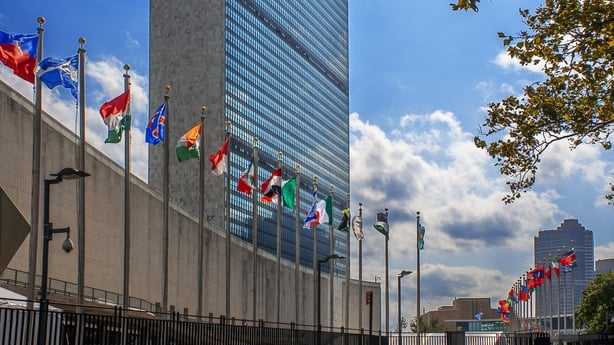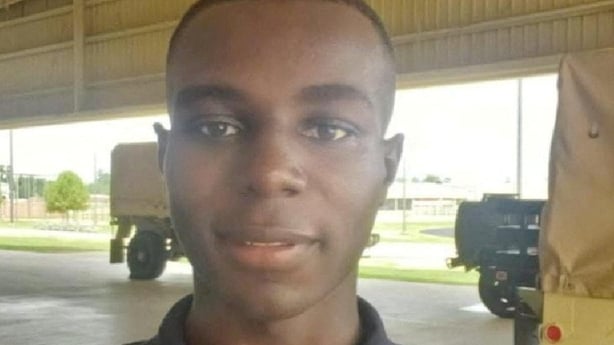The United Nations Security Council has discussed human rights in North Korea for the first time since 2017.
The meeting was called by the United States, which holds the rotating presidency of the council for the month of August, but Russia and China voiced their objections.
UN human rights chief Volker Türk first addressed the council.
Speaking via videolink about the situation in North Korea, he said "human suffering of such magnitude engenders instability."
"Rarely has the DPRK (Democratic People's Republic of Korea) been more painfully closed to the outside world than it is today."
UN agencies have been barred from entering North Korea since the outbreak of Covid-19 in early 2020.
A defector from North Korea, Ilhyeok Kim, was then invited by the US to address the council.
Mr Kim testified that when he and his father left the country, his aunt was detained for failing to report their departure.
"North Korean secret police tortured her for several months," he said, adding that she ended up in a prison camp.
At the time his aunt had a five-year-old son and a three-year old-daughter, Mr Kim told the council.
"She was forced to say her last goodbyes to her beloved children.
"I cannot understand why my aunt and two cousins deserved this fate."
US Ambassador to the United Nations Linda Thomas-Greenfield commended Mr Kim’s bravery in delivering his testimony.
"Inaction is unacceptable," she told council members.
"We cannot have peace without human rights and the DPRK is a case in point."
She said the North Korean leader’s repressive, totalitarian control of society and widespread denial of fundamental freedoms ensured he regime could expend public resources developing its unlawful WMD (weapons of mass destruction) and ballistic missile programmes.
"This war machine - which stands in violation of multiple Security Council resolutions - is powered by repression and cruelty," Ambassador Thomas-Greenfield added.

But there were strong objections from other council members, notably Russia and China, who denounced the US for putting human rights on the agenda of the Security Council which is designed to deal with threats to international security.
"Pushing the council to consider the human rights situation in DPRK will not help to ease but will escalate the situation," China's envoy Geng Shuang told the meeting.
"It is irresponsible, unconstructive and an abuse of the council’s power."
Russia agreed, accusing the US of "clear hypocrisy".
The meeting was "pointless" and aimed at catering towards "western double standards," according to Russia’s deputy ambassador to the UN Dmitry Polyanskiy.
But representatives of 52 member states, including Ireland, gathered outside the council chamber following the meeting in support of the US position.
"We now call on all members states to join us in raising awareness of links between the human rights situation in DPRK and international peace and security and hold the DPRK government accountable for its actions," Ambassador Thomas-Greenfield said, delivering a statement to reporters.
Asked by RTÉ News which other countries’ human rights records she planned to raise at council level, Ms Thomas Greenfield said the US would be focusing "intensely" on human rights during its presidency of the council this month.
But she did not answer a follow up question on whether the US intended to raise China’s human rights record.

The meeting came as a US soldier is being detained in North Korea.
Travis King crossed the border from South Korea whilst on a civilian tour of the demilitarized zone (DMZ) separating the two countries.
Yesterday, North Korean state media reported that Private King said he had decided to enter North Korea because of "inhuman treatment and racial discrimination" in the US army.
The US State Department has not commented on the media reports.







